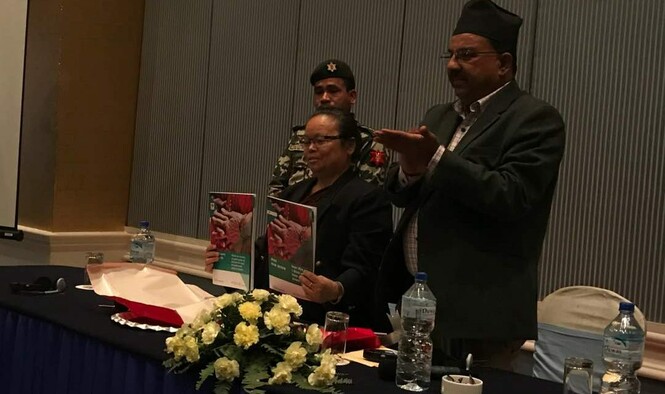
The risk of SGBV increases in times of disaster and crisis due to a breakdown in essential services, social systems, lack of referral pathways for SGBV survivors, unsafe shelter design and low levels of coordination between disaster responders.
Nepal’s experience in the aftermath of the 2015 Gorkha earthquake was sadly no exception to these alarming statistics. Many women and girls suffered or were vulnerable to SGBV in the post disaster period, including forms of SGBV that were not so prevalent in normal times, and for which there appeared to be insufficient preparedness or response.
The Nepal Red Cross and IFRC have committed to take action to respond to and prevent SGBV in times of disasters, as well as advocate for more inclusive disaster management approaches in law, policy and practice. As part of this, they partnered with the Forum for Women and Law Development in Nepal to deepen the analysis and connections between disaster law and policy, gender equality and SGBV in times of disaster.
The resulting Nepal case study on “Effective Law and Policy on Gender Equality and Protection from SGBV in Disasters” was launched in Kathmandu on the 22nd of March 2018 by Nepal’s Minister for Women, Children and Senior Citizens, The Honourable Ms. Tham Maya Thapa, and the Chairman of Nepal Red Cross Society, Mr Sanjeev Thapa.
The Minister set the scene for the launch remarking that Nepal had suffered greatly due to “political instability, conflict and natural disasters, which have further aggravated circumstances in an already discriminatory society”. She went on to explain that this “has led to the victimhood of women, disabled women, and dependent children.” The Minister reiterated the urgency to “address these issues and to execute the recommendations of this report to bring about a much-needed transformation in society”.
Many of these sentiments were also shared in the panel discussion during the event. The distinguished speakers included the Honourable Pushpa Bhusal, Member of Federal Parliament, Nepal; Ms..Meera Dhungana, Senior Advocate and Chairperson, Forum for Women, Law and Development; Ms Radhika Aryal, Joint Secretary, Ministry of Women, Social Welfare and Children; Mr Suresh Adhikari, Joint Secretary, Ministry of Federal Affairs and General Administration; and Ms Gabrielle Emery, Asia Pacific Disaster Law Coordinator, International Federation of the Red Cross and Red Crescent Societies.
Panellists provided a candid appraisal of good practice and gaps in responding to and preventing SGBV after the 2015 Earthquake, and reflected on how law and policy in Nepal could be strengthened to better prepare and ensure more coordinated responses in future disasters. Radhika Aryal, the Joint Secretary for the Ministry of Women, Social Welfare and Children, remarked that the earthquake was a real learning experience on how to respond to the needs of women in disaster times. She recognised that many of the policies and practices of the Women’s Ministry needed to be “disaster proof”, as well as requiring a deeper engagement of the Women’s Ministry and women’s groups in disaster management – including in decision making at all levels.
The launch concluded with a commitment by the Minister, policy makers and practitioners to continue to raise awareness of this issue, and to implement the recommendations of the report. It is hoped that this will ensure that more effective law, policy and programming on gender equality and protection from sexual and gender-based violence in disasters is made a reality.
This research was made possible with the support of the Swedish Red Cross and the Government of Sweden.